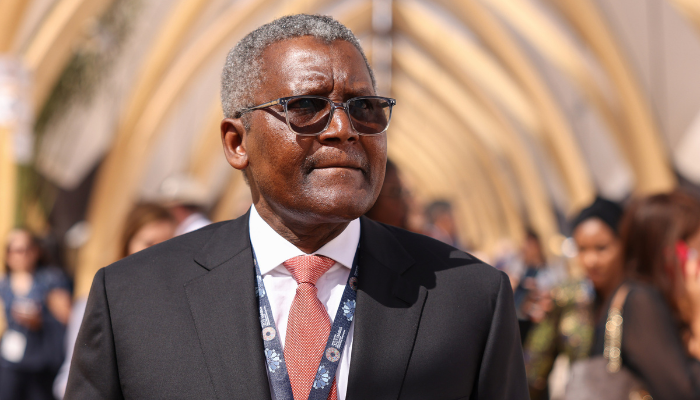The Dangote Petroleum Refinery has enough Premium Motor Spirit (petrol) in storage to fully meet Nigeria’s domestic demand, according to the President of Dangote Industries Limited, Aliko Dangote. Speaking over the weekend, he revealed that the refinery currently holds more than half a billion litres of petroleum products, valued at over ₦600 billion.
“As we speak, we have more than half a billion litres in storage. The refinery is producing enough refined products—gasoline, diesel, and kerosene—to meet 100 per cent of Nigeria’s requirements,” Dangote stated.
His remarks came after a tour of the refinery complex by a Zambian government delegation led by the country’s Minister of Energy, Mr. Makozo Chikote. Dangote emphasized that the refinery’s impact extends beyond Nigeria, aligning with the African Continental Free Trade Area (AfCFTA) initiative.
“This refinery is not just for Nigeria; it is for Africa. We must sustain the AfCFTA deal, and we are working on strengthening trade with other African nations,” he said.
Zambia Seeks Energy Partnership with Dangote
Following the visit, Minister Chikote expressed admiration for Dangote’s vision and commitment to Africa’s industrial growth. Leading a delegation of energy experts, he affirmed Zambia’s readiness to collaborate with Dangote on energy solutions.
After touring the refinery and other facilities within the Free Trade Zone in Ibeju Lekki—including the Single Point Mooring, Dangote Jetty, and Africa’s largest fertilizer plant—the minister described the experience as eye-opening. He noted that the presentation by Edwin Devakumar, Vice President of Oil and Gas at Dangote Industries, resonated deeply with Zambia’s energy challenges.
“In Zambia, we have created an environment for private sector participation in our development. Currently, 100 per cent of our petroleum sector is privately operated. We are working to boost productivity in mining, agriculture, and other sectors, and your presentation offers an immediate solution to our energy needs,” Chikote said.
He emphasized the importance of competition and expressed eagerness for Dangote’s entry into Zambia’s energy market.
“We are looking at Dangote coming on board to provide efficient, reliable, high-quality, and competitive products—and we need this to happen as soon as possible.”
The minister also underscored the importance of intra-African trade. “From what we’ve seen here, Africa must promote trade within the continent to strengthen its economies. We need to work together to make Africa an efficient and reliable trade hub.”
Private Sector Key to Africa’s Development
Another Zambian delegate, Samuel Maimbo—Vice President of Budget, Performance Review, and Strategic Planning at the World Bank Group and a candidate for the African Development Bank (AfDB) presidency—highlighted the role of private enterprises in Africa’s economic progress.
“There is neither enough development aid nor sufficient government funding to develop Africa at the pace and scale required. The only way to finance Africa’s growth effectively is by working through the private sector, which is why we are here—to learn and witness what an ambitious industrial program looks like,” he said.
Dangote Refinery’s Production Capacity
Edwin Devakumar, Vice President of Dangote Industries Limited, reiterated that the refinery prioritizes quality and efficiency.
“The project’s goal was to process Nigerian crude and add value, while also maintaining the flexibility to refine other African and Middle Eastern crude oils,” he explained.
He further detailed the refinery’s production strategy, emphasizing maximum value extraction from every barrel of crude.
“Our refinery can meet Nigeria’s entire fuel demand. Of our total production, 44 per cent is sufficient for local consumption, while the remaining 56 per cent will be exported. Every day, we produce 104 million litres of lighter petroleum products, including 57 million litres of petrol, 20 million litres of jet fuel, and 27 million litres of diesel. With local consumption at approximately 46 million litres daily, the excess 58 million litres will be exported,” Devakumar stated.
